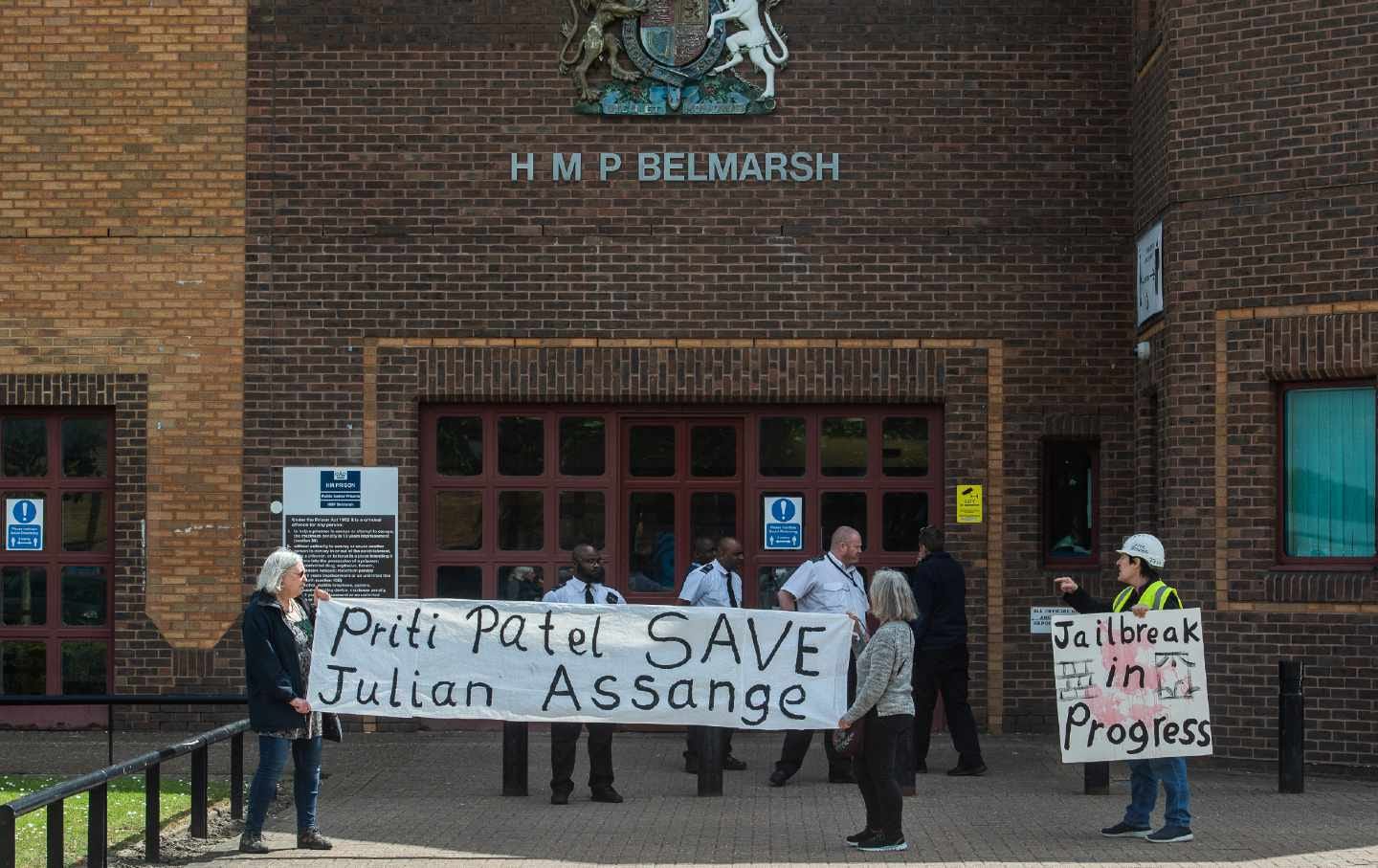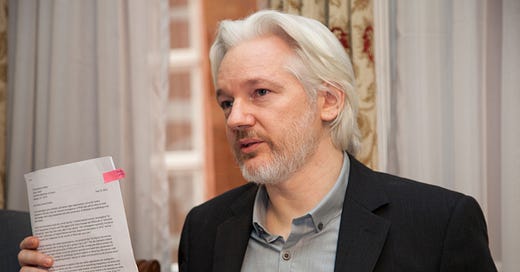The Death of Journalism
The US claims that it is a nation of freedom, yet as its continued persecution of Julian Assange reaches the point where he might be extradited, it shows its true authoritarian colours.
On February 20th, Julian Assange will face a final hearing at the Royal Court of London, which will ultimately determine whether or not he is extradited to the US, where he will face 18 charges under the 1917 Espionage Act, which could amount to imprisonment in a maximum security prison for 175 years.
Julian Assange is a journalist who among other things founded WikiLeaks, and whose journalistic work has helped expose numerous war-crimes and cases of corruption by the US, the UK, and other governments.
Assange has spent more than a decade in imprisonment. From 2012 to 2019 he lived in exile in a room in the Ecuadorian embassy in London, and in 2019 he was dragged from the embassy and placed in Belmarsh Prison (a maximum security prison), where he has remained for the last four years.
All these years, Assange has attempted to avoid extradition to the US; and understandable attempt, given that he is charged under the Espionage Act, which would not only disable him from making a proper defence for himself in court, but also almost certainly lead to him being imprisoned in a maximum security prison for the rest of his life.
In much of the mainstream media, Assange has been framed as some sort of political operative who, among other claims, hacked into government databases and whose journalism helped Donald Trump win the 2016 US Presidential election and put US military personnel in danger. None of this is true, as Assange didn’t hack into anything, but rather helped his source avoid detection; the leaks of Hilary Clintons emails came out years after his imprisonment, and even then I’d ask whether revealing a politicians corruption should lead to hatred of Assange, even if it somehow helped Trump win; the prosecution has been unable to demonstrate that any harm has come to US military personnel as a result of the reporting.
Nonetheless, claims like these are repeated to leave the public with a sense of confusion about how to view Assange. Journalist Caitlyn Johnstone has written an excellent rebuttal of the most common smears used against Assange, which can be found here.
The case of Assange is in fact very simple. A journalist discovers evidence of war-crimes committed by the US government, a long with a slew of corruption, and decides to share this information with the public.
Information which is obviously in the interest of the public to learn about.
The US government, enabled by the UK government, which seeks to uphold the image, that it is a free, democratic and just country, then begins persecuting this journalist, through a combination of smear-campaigns and by abusing it’s own legal system to prosecute him in as a spy.
It really is that simple.

Now although Assange has not yet been prosecuted in the US, there is an apparent warning to the whole world inherent in Assange’s persecution in itself; that this is what will happen to anyone who challenges the US government. They are essentially making an example of Assange to deter anyone who would dare making similar revelation, chilling the spines of every potential whistleblower or journalist in the world. Assange has not been convicted of anything as of yet, and nonetheless he has been imprisoned for more than a decade.
The US has maliciously decided to charge Assange under the Espionage Act of 1917, on the false allegation that he helped whistleblower Chelsea Manning hack into US government defence databases, when in reality all Assange did besides receiving the classified documents from Manning, was to help her cover her tracks and protect her identity from being revealed, as reported by Glenn Greenwald and Micah Lee. It is a fundamental ethical tenet for journalists to help their source protect their identity, and the prosecutions attempt to frame this as being illegal, reveals that this case is really about criminalising journalism.
Assange received classified documents from Chelsea Manning, and like and descent journalist, published them in a responsible manner. One of the main reasons that Assange wasn’t charged sooner, is that the Obama administration realised, that there was little difference between what Assange did, and other news outlets like the Guardian and the New York Times did (among many others), who also reported on the leaks.
After Trump took office, the Department of Justice charged Assange under the Espionage Act, and its argument as to what separates Assange form other outlets, is their allegation that he “colluded” with Manning, by urging her to leak the documents.
Yet, as explained by Dan Kennedy, Professor of journalism at Northeastern University of Boston, this argument is nonsensical, as:
“The problem is that there is no meaningful distinction to be made.
How did the Guardian, equally, not "collude" with WikiLeaks in obtaining the cables? How did the New York Times not "collude" with the Guardian when the Guardian gave the Times a copy following Assange's decision to cut the Times out of the latest document dump?
For that matter, I don't see how any news organisation can be said not to have colluded with a source when it receives leaked documents. Didn't the Times collude with Daniel Ellsberg when it received the Pentagon Papers from him? Yes, there are differences. Ellsberg had finished making copies long before he began working with the Times, whereas Assange may have goaded Manning. But does that really matter?”
This fundamental truth, that there is no relevant difference between the actions of Assange (WikiLeaks) and other news outlets, is what the prosecution is doing everything it can to conceal, as it is apparent to anyone, that if there is no real difference, it makes no sense that every other journalist who reported on the leaks isn’t facing the same charges.
The truth, that it is the act of journalism itself that is being criminalised.
This is why so many activists, journalists, civil liberty groups and press freedom organisations, human rights organisations, politicians and citizens call for his release; it is obvious that what is being done to Assange will be done to everyone if allowed to happen.
Even a majority of the Australian Parliament (Assange is an Australian national), voted for a resolution calling for Assange’s release yesterday.
Don’t be mistaken or misled by the smears and deceit. This case is about one thing, and that is the criminalisation of journalism; the attempt of the US government to make it illegal for anyone to expose its own crimes.
“A society that prohibits the capacity to speak in truth extinguishes the capacity to live in justice.”




